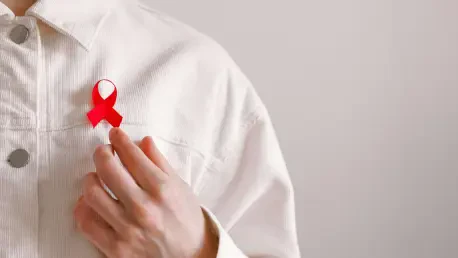The ongoing battle against HIV in the United States faces significant challenges as federal funding cuts threaten vital prevention and treatment programs. In Mississippi, where health disparities are particularly pronounced, dedicated activists like Cedric Sturdevant have risen to the occasion, determined to counteract the severe consequences of these budgetary reductions. This article aims to highlight their continuous efforts and outline the critical importance of their work.
Historical Context and Background
Federal funding cuts that commenced under the Trump administration have posed a serious threat to HIV prevention and treatment, particularly in areas like the South, where new HIV diagnoses are highest. Historically, marginalized communities, including Black and Latino populations, have borne the brunt of the epidemic. Decades of systemic inequities have left them disproportionately vulnerable, emphasizing the necessity for sustained financial support to address their needs.
Significant Contributions and Challenges
Despite the hurdles posed by funding slashes, remarkable contributions by individuals and organizations have kept the spirit of activism alive.
Cedric Sturdevant’s Impact
Cedric Sturdevant, a gay Black man living with HIV, has emerged as a formidable force in combating these health disparities. Co-founding a grassroots organization in the Mississippi Delta, Sturdevant has harnessed the power of community support and faith, turning personal battles into public advocacy. His efforts spotlight the sweeping effects of the epidemic on individual lives and entire communities.
Grassroots Organizations’ Role
Grassroots organizations play an indispensable role in championing the health needs of underserved communities. They provide essential services such as testing, outreach, and education, often compensating for gaps left by limited federal support. Leaders such as Marnina Miller and June Gipson demonstrate resilience by unifying efforts akin to the cartoon Voltron, representing the collective strength needed to fight back against oppressive challenges.
Unique Characteristics of Mississippi’s Activism
Mississippi’s activism stands out due to its deeply rooted community engagement and an emphasis on addressing systemic inequalities. The coalition of activists in the state uniquely adapts their methods to prioritize marginalized voices, with a focus on inclusion, solidarity, and cultural relevance. Their activism is informed by a comprehensive understanding of the historical neglect experienced by their communities, enabling them to tailor their advocacy strategically.
Current State and Ongoing Efforts
Today, Mississippi’s HIV activists remain relentless in their pursuit of health equity. With federal funding diminishing, they embrace innovative strategies to sustain and expand their reach. Initiatives like pooling resources with larger organizations and seeking philanthropic partnerships are underway to bridge funding gaps and secure the future of essential services. Despite the daunting challenges, progress is fueled by commitment and resourcefulness.
Reflection and Broader Impacts
The HIV activism in Mississippi not only affects the local community but also contributes to broader societal changes, highlighting how focused advocacy can influence systemic reform.
Reflection
The strengths of Mississippi’s activism lie in its community-focused approach, collective resilience, and adaptability. However, challenges persist in overcoming entrenched systemic barriers and securing adequate resources to sustain long-term efforts.
Broader Impact
The steadfast work of these activists signals potential pathways for generating change in other regions facing similar issues. Their dedication underscores the importance of addressing health inequalities and informs wider societal discourse on social justice and equity.
Conclusion and Call to Action
Federal funding cuts present formidable challenges, yet Mississippi’s HIV activists exemplify resilience and innovation as they strive to protect critical health services. Their story underscores the urgency of continuing advocacy and forming strategic alliances to fill funding voids. As we consider future endeavors, it is imperative to support initiatives that advance health equity, ensuring that all communities receive the comprehensive care they need.









